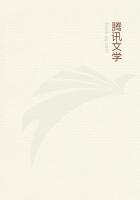First, then, I would say, that we must be alone in the pursuit of Truth and the work of Duty.Others may aid me in these, but I must decide and act for myself.I must believe for myself.I must do right for myself; or if I do wrong, it is also for myself, and in myself I realize the retribution.
By my own sense of right and wrong-by my own standard of truth and falsehood-I must stand or fall.There is in this world nothing so great and solemn as the struggles of the solitary soul in its researches after the truth,--in its endeavors to obey the right.We may be indifferent to these vital questions,--it is to be feared that many are; we may glide along in the suppleness of habit, and the ease of conventionalism; we may never trouble ourselves with any pungent scruples; we may never pursue the task of introspection, or bring to bear upon the fibres of motive and desire within us the intense focus of God's moral law; we may never vex our souls with tests of faith, but rest contented with the common or hereditary standard;--but he who will be serious in the work of spiritual discipline, who will act from a vital law of duty, must endure struggles and conflicts than which, I repeat, there is nothing more solemn under the sun.He will often find himself opposed to the general current of human faith and action.His position will be singular.His principle will be tried.Interest will direct him another way; his strictness will be ridiculed, his motives questioned, his sincerity misunderstood and aspersed.
Alone must he endure all this,--along cling to the majestic ideal of right as it rises to his own soul.And thus he must wage a bitter conflict with fear and with seduction,--with sophistries of the heart, and reluctance of the will.
Often, too, must he question his own motives with a severer judgment than that of the world, as his scrutiny is more close, and his self-knowledge more minute.He knows the secret sin, the mental act, the spiritual aberration.He knows the distance between his highest effort and that lofty standard of perfection to which he has pledged his purposes.
Alone, alone does the great conflict go on within him.The struggle, the self-denial, the pain, and the victory, are of the very essence of martyrdom,--are the chief peculiarities in the martyr's lot.His, too, must be the solitude of prayer, when, by throwing by all entanglements,--in his naked individuality,--he wrestles at the Mercy Seat, or soars to the bliss of Divine communion.In such hours,--in every hour of self-communion,--when we ask ourselves the highest questions respecting faith and duty, it is the deepest comfort to the religious soul to feel and to say, "I am not alone, for the Father is with me."Again; there are experiences of Sorrow in which we are peculiarly alone.How often does the soul feel this when it is suffering from the loss of friends! Then we find no comfort in external things.Pleasure charms not; business cannot cheat us of our grief; wealth supplies not the void;and though the voice of friendship falls in consolation upon the ear, yet with all these, we are alone,--alone! No other spirit can fully comprehend our woe, or enter into our desolation.No human eye can pierce to our sorrows; no sympathy can share them.Alone we must realize their sharp suggestions, their painful memories, their brood of sad and solemn thoughts.The mother bending over her dead child;--O!
what solitude is like that?--where such absolute loneliness as that which possesses her soul, when she takes the final look of that little pale face crowned with flowers and sleeping in its last chamber, with the silent voice of the dead uttering its last good night? What more solitary than the spirit of one who, like the widow of Nain, follows to the grave her only son?--of one from whom the wife, the mother, has been taken? The mourner is in solitude,--alone, in this peopled world;--O, how utterly alone! Through the silent valley of tears wanders that stricken spirit, seeing only memorials of that loss.














